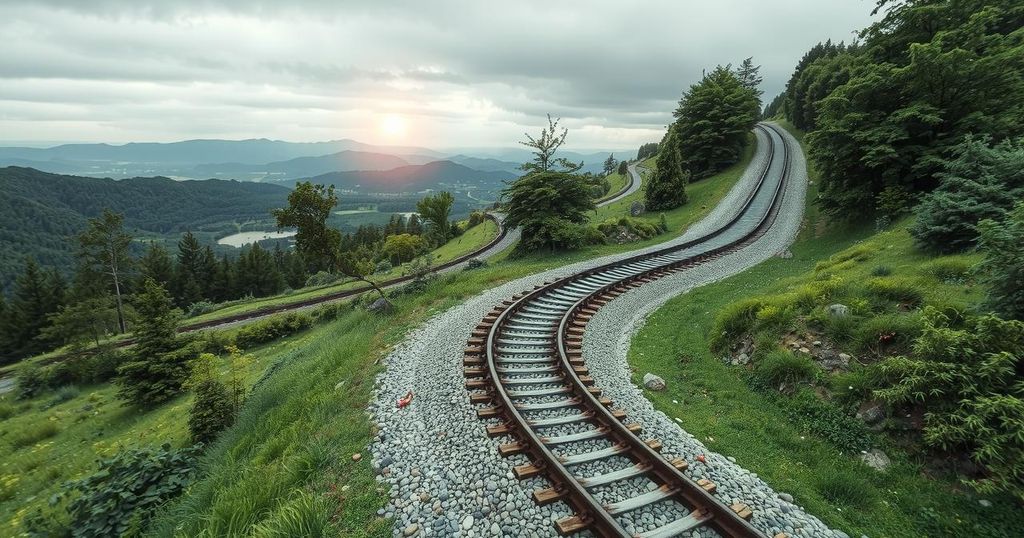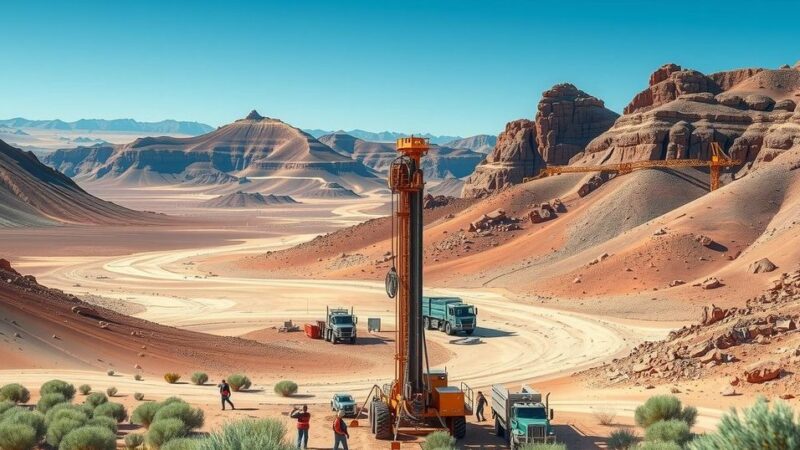HPX is under increasing scrutiny for its plan to build a railway through Liberia to export iron ore from Guinea amid doubts about feasibility and Guinea’s sovereignty stance. Historical resistance to exporting resources through Liberia and the recent construction of the Trans-Guinean Railway complicate HPX’s project, as critics argue it lacks credible support and could leave Liberia financially exposed without proper agreements from Guinea.
High Power Exploration (HPX), a mining company backed by billionaire Robert Friedland, faces increasing scrutiny over its plans to secure rail access through Liberia for exporting iron ore from Guinea’s Nimba deposit. Critics, including industry experts and regional policymakers, are questioning the feasibility and intent of HPX’s proposed $5 billion infrastructure project, which they argue conflicts with Guinea’s long-standing resource sovereignty policies and its new rail initiative.
For over sixty years, Guinean governments have consistently denied approvals for exporting iron ore through Liberia, emphasizing the need for mining companies to invest in domestic infrastructure. This approach is based on economic nationalism and was momentarily relaxed under former President Alpha Condé’s administration. However, after the coup in 2021, the new military-led government has indicated a return to Guinea’s historic policy priorities.
Recently, Guinea’s geopolitical scenario changed significantly with a major deal between Rio Tinto and Winning International Group to construct the Trans-Guinean Railway. This upcoming 650-kilometer railway, nearly finished and connecting Guinea’s vast Simandou reserves to a deepwater port in Conakry, represents a strategic shift, allowing direct transportation of iron ore and is anticipated to be operational by late 2025.
HPX’s Nimba mine is strategically located only 130 kilometers from this new rail line, making it a more cost-effective option compared to the proposed 240-kilometer railway through Liberia to the port of Buchanan. Critics have pointed out that the $5 billion investment in Liberia seems unnecessary when leveraging Guinea’s existing infrastructure would be much cheaper. “Economically, this makes no sense,” noted mining economist Mamadi Trawally, suggesting that HPX’s proposal might serve more as a pressure tactic than a genuine plan.
Despite HPX claiming it will transport 25 million tonnes of ore annually through Liberia with assurances from Guinea’s authorities, the company has not provided documented proof of such approvals. This lack of transparency has led to accusations of dishonesty, with activist James Flomoku stating that HPX is presenting an unrealistic vision. The shift to Liberia comes at a time when U.S. officials are also cautious about Guinea permitting a competing rail project, undermining its own major infrastructure investment.
Liberian President Joseph Boakai’s administration is now under pressure to either reject HPX’s proposal or demand solid evidence of Guinea’s consent before proceeding. There are concerns that the project could become a burden on Liberia, potentially leading to debt and unfinished projects should Guinea decide to deny transit rights. “HPX wants Liberia to gamble billions on a railway Guinea could veto overnight,” cautioned Abigail Weedor from the Liberian Civil Society Initiative.
As preparations for the Trans-Guinean Railway conclude, observers are emphasizing that HPX is responsible for substantiating its claims. According to political analyst Aissata Diallo, it is essential for HPX to adjust to the new political landscape in Guinea or acknowledge that its plans may have never been feasible. Citizens in Liberia now await definitive answers regarding the future of this controversial project.
The article centers on High Power Exploration (HPX) and its aspirations to construct a railway in Liberia for the transportation of iron ore from Guinea’s Nimba deposit. It highlights the historical backdrop of Guinea’s resource sovereignty policies and the recent developments following a transition in government. Key infrastructure projects, particularly the Trans-Guinean Railway, play a significant role in shaping the economic landscape of the region, impacting both Guinea and Liberia’s mining industries.
In summary, HPX’s ambitions to create a railway through Liberia face mounting skepticism amidst historical precedents of Guinea’s resource sovereignty and recent developments in their own infrastructure projects. The conflicting interests of developing a costly Liberian railway when a more efficient alternative exists raise questions about viability and transparency. Ultimately, the resolution of these issues will significantly influence Liberia’s economic future.
Original Source: frontpageafricaonline.com






